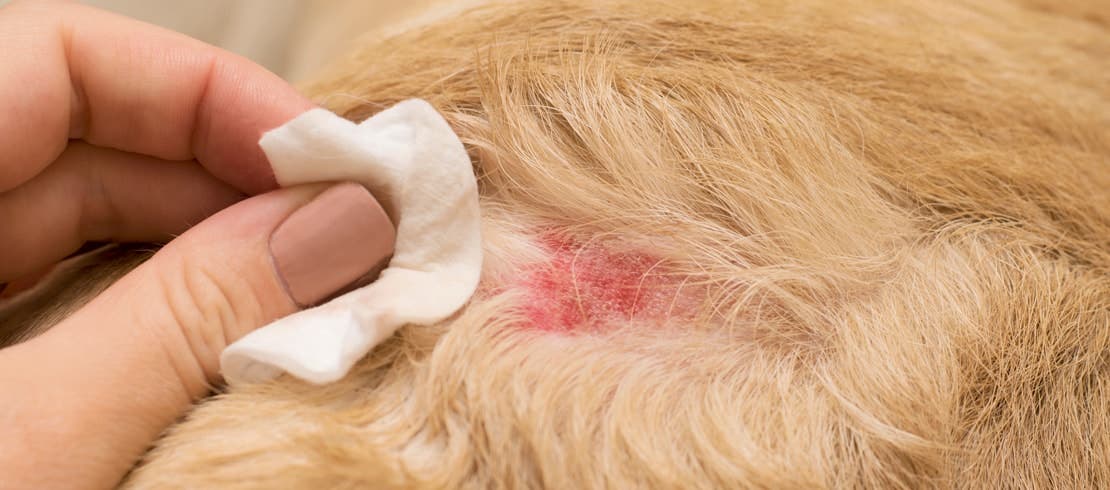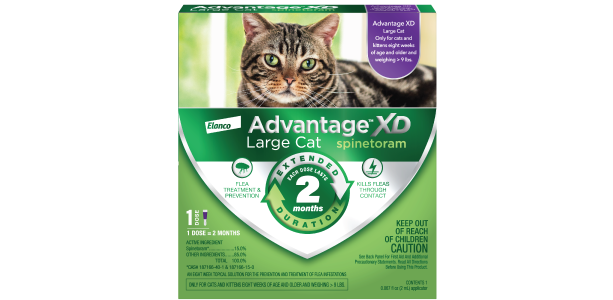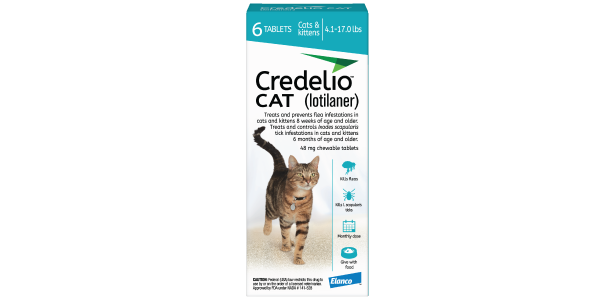Flea bites are itchy and irritating, but they can also cause serious health issues for dogs, cats, and sometimes humans. Learn more about the dangers of flea bites.
Fleas don't just cause itching and skin irritation in dogs and cats — their bites can also lead to far worse health issues. But did you know a flea infestation can also cause health problems for your family? Regardless of who they bite, the dangers of fleas extend beyond skin irritation.
Dangers to You and Your Pet
The most common flea-borne diseases and illnesses that can impact both you and your pet include:
Flea Allergy Dermatitis
Most commonly, fleas cause itchy skin in cats and dogs. But in some cases, they can wreak further havoc. Many animals are allergic to flea saliva, and flea bites can cause flea allergy dermatitis. When a cat or dog continues to scratch at the bite, it can cause swelling, irritation, welts and eventually broken skin, which can lead to skin infection and pain.
If your cat or dog has flea allergy dermatitis, your veterinarian may recommend an oral, topical or injected medication to help ease the irritation and prevent further itching. Additionally, your vet may prescribe an antibiotic or antifungal medication, particularly if an infection has developed. Make sure to consult your veterinarian on any treatment plans.
Humans can also be susceptible to flea allergy dermatitis. They can suffer from an allergic reaction to flea bites that causes severe itching, skin irritation and possibly infection. In some cases, this intense skin discomfort can temporarily impact quality of life, making it hard for you to sleep and go about your daily activities.

Bartonella
Bartonella is a common flea-transmitted illness in dogs and especially cats. It is often associated with numerous conditions including heart disease, eye inflammation and seizures.
To treat bartonella, veterinarians will prescribe a combination of antibiotics for an extended period of time. Typically, pets will need to be treated with antibiotics for six weeks to three months to fully eradicate the disease.
Humans can contract bartonella, also known as cat scratch fever, if their cat scratches them while they have flea bacteria on their claws. Serious symptoms can include eye infections, encephalitis (swelling of the brain), fever and severe muscle pain.
Tapeworms
Cats and dogs may also contract tapeworms from ingesting a flea. This is especially common when pets groom themselves, particularly in an attempt to soothe irritated skin. If your dog or cat has fleas and you suspect they have a tapeworm, take them to the veterinarian for an exam and treatment. You can also purchase many tapeworm treatments in pet stores or online. Without treatment, tapeworms can slowly rob your pet of nutrients, eventually leading to weight loss.
Though rare, pet owners can also unknowingly ingest fleas and the tapeworm eggs fleas carry. They can then develop tapeworm as a result, which can lead to nausea, vomiting, diarrhea and other intestinal issues.
Other Dangers to Your Pet
Fleas are blood-sucking parasites, and if they continue feasting on cats or dogs for any length of time, the pet may develop anemia. This condition can cause lethargy at the very least and may even cause death in puppies, kittens or older pets.
To treat anemia in dogs and cats, your veterinarian may suggest intravenous fluids, antibiotics and, in severe cases, blood transfusions.
How Can Pet Owners Prevent Fleas?
Although it is possible to get rid of fleas once they have infested, pet owners should try to protect their dogs and cats from becoming infested in the first place. Talk to your pet's veterinarian about flea and tick preventives, which are available in a variety of forms including chewables, topical treatments and collars, to address a flea problem before the insects attack.

Seresto® Flea & Tick Collar for Dogs
An easy-to-use, odorless, non-greasy collar that kills and repels fleas and ticks for 8 continuous months.

Seresto® Flea & Tick Collar for Cats
An easy-to-use, odorless, non-greasy collar that kills and repels fleas and ticks for 8 continuous months.

Advantage® XD (spinetoram)
Kills fleas for two months with one dose, outlasting the typical six-week flea life cycle — and the monthly competition.

Credelio® (lotilaner)
As a trusted resource, your vet can provide additional information on how prescription-only Credelio can protect your dog from ticks and fleas all year long when taken monthly.

Credelio® CAT (lotilaner)
Protect your feline friend with Credelio Cat, the first and only flea and tick chewable for cats.

K9 Advantix® II
A convenient, monthly topical application that kills and repels fleas, ticks and mosquitoes through contact, so they don't have to bite your dog to die. Do not use on cats.
Credelio® (lotilaner)
Indications:
Credelio kills adult fleas and is indicated for the treatment and prevention of flea infestations and treatment and control of tick infestations (lone star tick, American dog tick, black-legged tick, and brown dog tick) for one month in dogs and puppies 8 weeks and older and 4.4 pounds or greater.
Important Safety Information:
Lotilaner is a member of the isoxazoline class of drugs. This class has been associated with neurologic adverse reactions including tremors, incoordination, and seizures. Seizures have been reported in dogs receiving this class of drugs, even in dogs without a history of seizures. Use with caution in dogs with a history of seizures or neurologic disorders. The safe use of Credelio in breeding, pregnant or lactating dogs has not been evaluated. The most frequently reported adverse reactions are weight loss, elevated blood urea nitrogen, increased urination, and diarrhea. For complete safety information, please see Credelio product label or ask your veterinarian.
Credelio® CAT (lotilaner)
Indications:
Credelio CAT kills adult fleas and is indicated for the treatment and prevention of flea infestations for one month in cats and kittens 8 weeks of age and older and weighing 2 pounds or greater.
Credelio CAT is also indicated for treatment and control of black-legged tick infestations for one month in cats and kittens 6 months of age and older and weighing 2 pounds or greater.
Important Safety Information:
Lotilaner is a member of the isoxazoline class of drugs. This class has been associated with neurologic adverse reactions including tremors, incoordination, and seizures. Neurologic adverse reactions have been reported in cats receiving isoxazoline class drugs, even in cats without a history of neurologic disorders. Use with caution in cats with a history of neurologic disorders. The safety of Credelio CAT has not been established in breeding, pregnant and lactating cats. The effectiveness of Credelio CAT against black-legged ticks in kittens less than 6 months of age has not been evaluated. The most frequently reported adverse reactions are weight loss, rapid breathing and vomiting. For complete safety information, please see Credelio CAT product label or ask your veterinarian.
